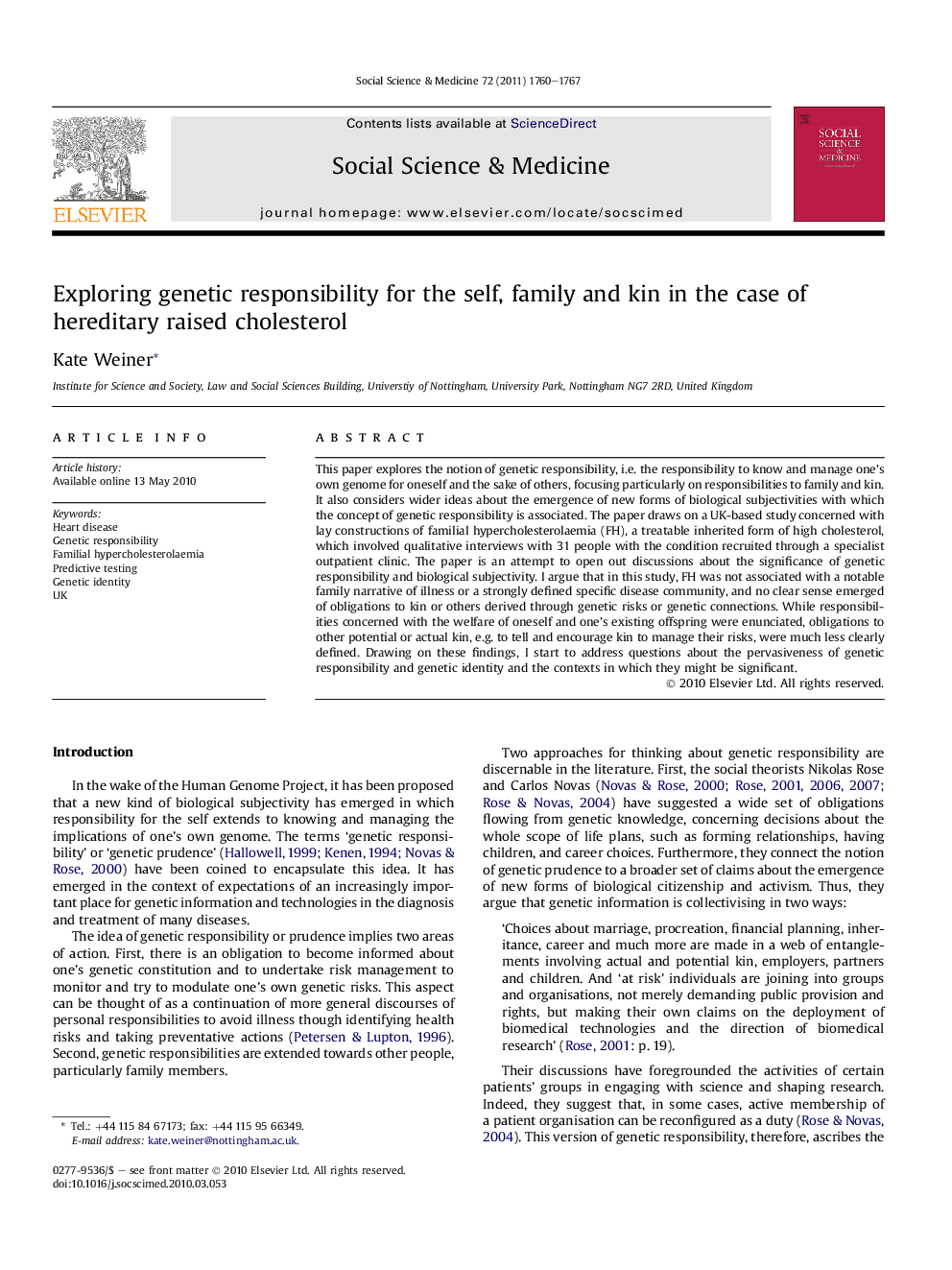| Article ID | Journal | Published Year | Pages | File Type |
|---|---|---|---|---|
| 10471852 | Social Science & Medicine | 2011 | 8 Pages |
Abstract
This paper explores the notion of genetic responsibility, i.e. the responsibility to know and manage one's own genome for oneself and the sake of others, focusing particularly on responsibilities to family and kin. It also considers wider ideas about the emergence of new forms of biological subjectivities with which the concept of genetic responsibility is associated. The paper draws on a UK-based study concerned with lay constructions of familial hypercholesterolaemia (FH), a treatable inherited form of high cholesterol, which involved qualitative interviews with 31 people with the condition recruited through a specialist outpatient clinic. The paper is an attempt to open out discussions about the significance of genetic responsibility and biological subjectivity. I argue that in this study, FH was not associated with a notable family narrative of illness or a strongly defined specific disease community, and no clear sense emerged of obligations to kin or others derived through genetic risks or genetic connections. While responsibilities concerned with the welfare of oneself and one's existing offspring were enunciated, obligations to other potential or actual kin, e.g. to tell and encourage kin to manage their risks, were much less clearly defined. Drawing on these findings, I start to address questions about the pervasiveness of genetic responsibility and genetic identity and the contexts in which they might be significant.
Related Topics
Health Sciences
Medicine and Dentistry
Public Health and Health Policy
Authors
Kate Weiner,
